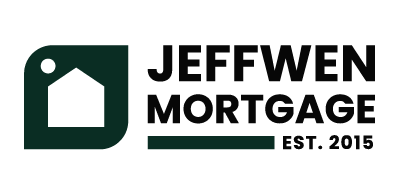Understanding FHA Loans: A Comprehensive Guide
An FHA loan is a mortgage issued by an approved lender and insured by the Federal Housing Administration (FHA). Designed to help lower-income borrowers with less-than-perfect credit, FHA loans offer more lenient qualification criteria compared to conventional loans. These loans are particularly popular among first-time homebuyers and those who may not have substantial savings for a large down payment.
Key Features of FHA Loans
- Lower Down Payment Requirements: FHA loans require a minimum down payment of just 3.5% of the purchase price, making homeownership more accessible for many buyers.
- Flexible Credit Score Requirements: Borrowers with credit scores as low as 580 can qualify for the 3.5% down payment option. Those with scores between 500 and 579 may still qualify, but they must make a 10% down payment.
- FHA Mortgage Insurance: Borrowers are required to pay both an upfront mortgage insurance premium (UFMIP) and an annual mortgage insurance premium (MIP). These premiums protect lenders in case of default.
- Assumable Loans: FHA loans are assumable, meaning that if you sell your home, the buyer can take over your existing loan, potentially benefiting from your favorable interest rate.
- Debt-to-Income Ratio (DTI): The FHA allows for higher DTI ratios compared to conventional loans, typically up to 43%, but in some cases, even higher possibly all the way to 56.9% depending on compensating factors.
Advantages of FHA Loans
- Accessibility: Lower down payment and credit score requirements make FHA loans accessible to a broader range of borrowers.
- Lenient Qualification Standards: FHA loans are designed to help those who might not qualify for conventional loans due to credit or financial issues.
- Potentially Lower Interest Rates: Depending on the market and borrower qualifications, FHA loans can offer competitive interest rates.
Disadvantages of FHA Loans
- Mortgage Insurance Costs: The requirement to pay both UFMIP and MIP can increase the overall cost of the loan.
- Property Standards: Homes purchased with FHA loans must meet certain health and safety standards, which can limit property choices.
- Loan Limits: FHA loans have maximum lending limits, which vary by region and property type, potentially restricting the purchase of higher-priced homes.
How to Qualify for an FHA Loan
- Minimum Credit Score: Ensure your credit score meets the minimum requirement (580 for 3.5% down payment, 500 for 10% down payment).
- Stable Income: Provide proof of steady employment and income to demonstrate your ability to repay the loan.
- Debt-to-Income Ratio: Maintain a DTI ratio within acceptable limits, typically no higher than 43%, unless there are some other compensating factors that will allow for a higher debt to income ratio.
- Upfront Costs: Be prepared to pay the upfront mortgage insurance premium and closing costs, though some of these can be rolled into the loan.
Conclusion
An FHA loan is an excellent option for homebuyers who may not qualify for conventional mortgages due to lower credit scores or limited savings. With its lower down payment and flexible credit requirements, the FHA loan makes homeownership more achievable for many individuals and families. However, it’s important to consider the additional costs of mortgage insurance and the property standards required by the FHA. By understanding the benefits and limitations of FHA loans, you can make an informed decision and take the necessary steps towards purchasing your home.the benefits and limitations of FHA loans, you can make an informed decision and take the necessary steps towards purchasing your home.
